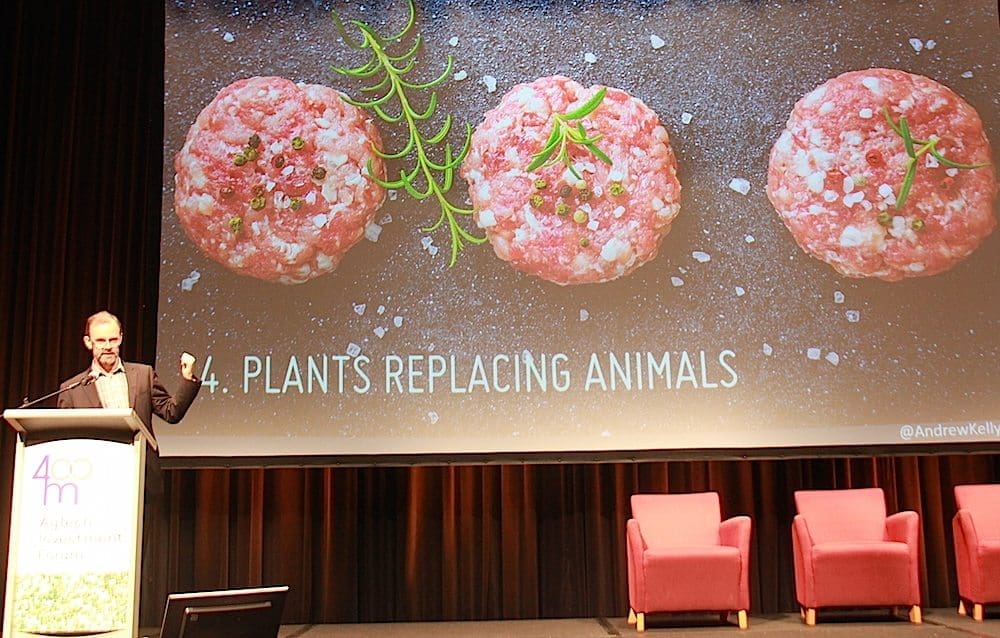
Andrew Kelly warns that plant based burgers, like the Impossible Burger pictured, could quickly capture a big percentage of the global burger market.
Plant-based beef burgers could be about to have a much bigger impact on global beef consumption than many may realise, the 400M Ag Tech Investment conference in Toowoomba was told yesterday.
The world is shifting fast towards plant-based proteins, much faster than a lot of people may be aware, leading ag tech investor Andrew Kelly, BioPacific Partners, warned.
Pictured above is the “Impossible burger”, an entirely-plant based hamburger produced by Impossible Foods.
Since 2011 the company has raised $182m with investment support from big hitters including Google Ventures and Bill Gates.
The Impossible burger is made from ingredients including wheat and potato protein and coconut oil and includes the blood iron carrying chemical Haem to make its meat-free burgers “bleed”.
Impossible Foods’ CEO David Lee has said the company has scientifically discovered “what makes people crave meat, right down to the substance”.
The burger now sells in restaurants in the US and started selling in nine upmarket Umami burger chain outlets in California this week, debuting on menus at a price of $16.
It also appears to be receiving positive feedback, with reviewers writing that they found it hard to differentiate from a normal burger.
But can this vegetarian burger win over the meat loving masses?
While many in the beef industry may dismiss this as a threat, Mr Kelly believes this technology will be very disruptive – and not in 20 years time, but within the next five.
“My thesis here is that the minute somebody does get a burger that bleeds and will taste just as good and look just as good and have the same mouth feel, and of course remember a lot of the taste of the burger comes from the outside, where it has been seared and cooked, if they can get those largely right, I suspect a huge portion particularly of millennials will just switch,” he said.
“They will say, ‘hey, I have always liked my burgers, I don’t like the idea of going vegetarian or vegan, but I can now do that and it is good for the planet and I feel good about it’.
“And so that will be a very disruptive technology if that happens.”
Mr Kelly told Beef Central he doesn’t see the technology causing the demise of the beef industry, but believes it could potentially steal as much as 20 percent of global beef market share.
He said the industry had to be ready to cope with this challenge.
Competing in the high volume burger industry is one thing, but can similar technology be produced to replicate, and perhaps ultimately replace, a steak?
Mr Kelly said he was dubious.
While the emerging field is cellular agriculture is allowing scientists to grow muscle cells, he felt that no matter how hard they work at it, a steak as a single slice of meat would always retain dominance of that market.
While it seemed unlikely that anyone would walk into a fine restaurant and order a steak but eat something that wasn’t a steak, a burger was another story.

HAVE YOUR SAY